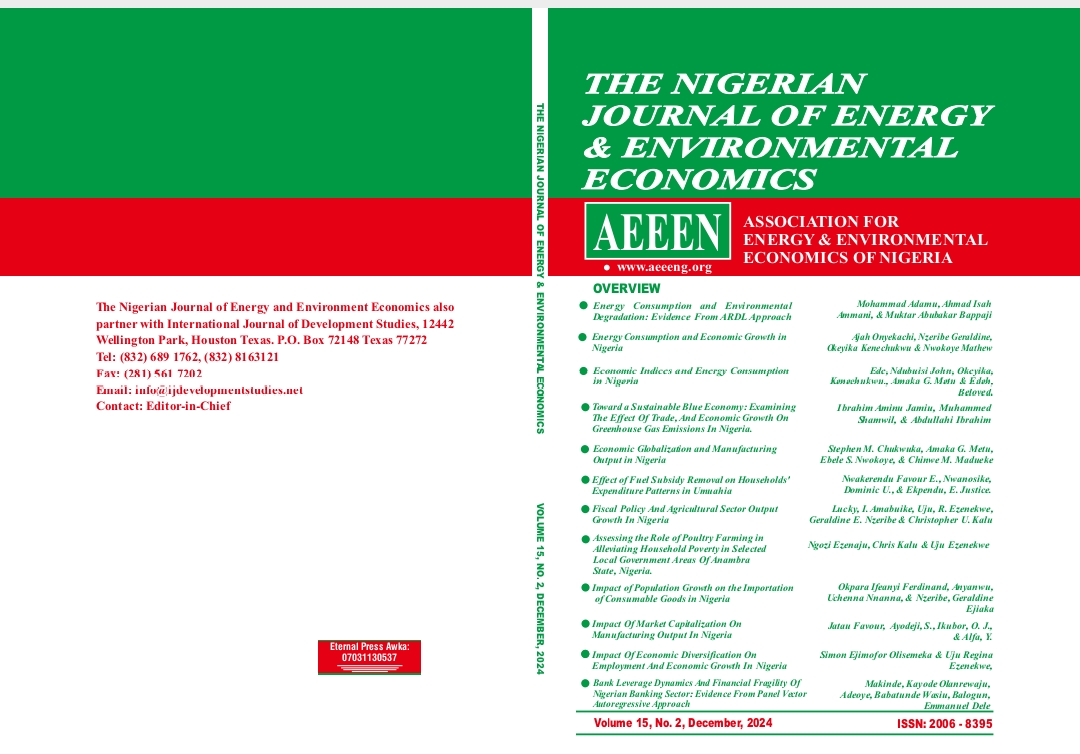ENERGY CONSUMPTION AND ECONOMIC GROWTH IN NIGERIA
Keywords:
Energy consumption, economic growth, VECM, NigeriaAbstract
Over the last four decades (1982-2022), the value of real gross domestic product of Nigeria has been low and the actual growth rate of real GDP has fallen below the country’s targeted growth rate on several occasions. To examine this concern, this study explored the impact of energy consumption on economic growth in Nigeria from 1990-2022. This study was anchored on the neo-classical growth theory and was based on the analytical framework of the Vector Error Correction model (VECM) and Granger Causality test. The findings showed that there exists a long-run dynamic relationship between energy consumption and economic growth in Nigeria.
The Granger Causality test result indicated that there exists no causal relationship between renewable energy consumption, non-renewable energy consumption and economic growth in Nigeria. The study concluded that energy consumption has a significant impact on economic growth in Nigeria. Based on these findings, the study recommended among other things that
government should boost its targeted spending on the energy sector by improving the overall budget allocated to the sector and also create an agency for energy financing such as the India's Renewable Energy Financing Agency.


